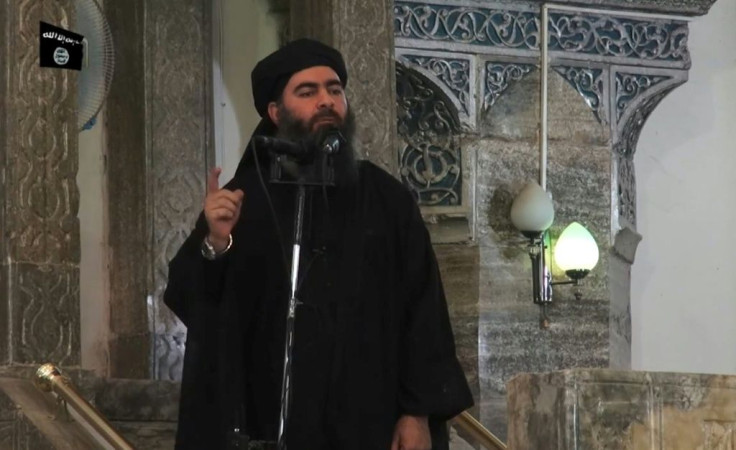What Donald Trump Said About US Forces Killing ISIS Leader Abu Bakr al-Baghdadi

President Donald Trump confirmed Sunday morning that U.S. Special Forces killed ISIS leader Abu Bakr al-Baghdadi in a raid Saturday in northwestern Syria.
Trump said that no U.S. personnel were killed in the mission. He announced that the U.S. has brought "the world's number one terrorist leader to justice" and that al-Baghdadi "was a sick and depraved man, and now he's gone."
President @realDonaldTrump just delivered a major announcement: the world's #1 terrorist leader has been brought to justice. pic.twitter.com/LE1pt01qaB
— The White House 45 Archived (@WhiteHouse45) October 27, 2019
Trump said that al-Baghdadi escaped into a tunnel after he realized he had been surrounded by U.S. forces. The terrorist leader then detonated a suicide vest, which killed himself and three of his children. Trump claimed that al-Baghdadi "died after running into a dead-end tunnel, whimpering and crying all the way."
Trump added that al-Baghdadi had been under surveillance for several weeks prior to the mission. He thanked Russia, Turkey, Syria, Iraq and the Syrian Kurds for their help. Trump said that he told very few U.S. lawmakers that the raid was a success, prior to Sunday's announcement, as he was worried about leaks to the press.
For Trump, the announcement is a major achievement for his administration. Under Baghdadi, ISIS has killed several U.S. citizens, most notably journalists James Foley and Steven Sotloff.
CNN cited sources that said U.S. law enforcement is on guard for any potential attacks in the U.S. in response to Baghdadi's death.
Baghdadi was born in 1971 in the Iraqi city of Samarra. He came from an observant Sunni family and his real name is Ibrahim Awwad Ibrahim al-Badri. He allegedly received a PhD at the Islamic University of Baghdad and formed an Islamist group in 2004 that fought against the U.S. invasion of Iraq.
Around 2006, Baghdadi came into contact with al-Qaeda in Iraq, which he helped expand. In 2011, the Syrian war began, with Baghdadi ordering attacks in Iraq and against Syrian President Bashar al-Assad's forces.
In the summer of 2014, ISIS expanded from its base in Syria to a large part of Iraq, and took over Iraq's second-largest city, Mosul. In June 2014, al-Baghdadi gave a sermon at a mosque in Mosul, in which he announced the establishment of an ISIS caliphate.
At its peak, ISIS controlled territory that extended from 34,000 square miles from western Syria to eastern Iraq. The U.S. had allied with an anti-ISIS coalition to attack the group and in March, the group lost its last pocket of territory it controlled in Syria.
There are still an estimated 14,000 to 18,000 ISIS fighters still left in Iraq and Syria, with the group also operating in West Africa, Libya, Egypt and the Philippines.
© Copyright IBTimes 2024. All rights reserved.




















